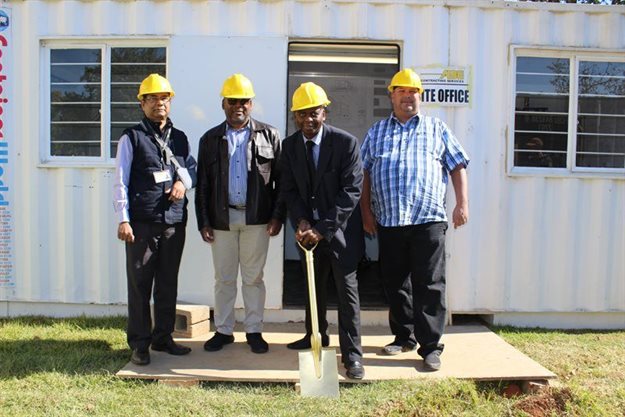
Top stories





Energy & MiningGlencore's Astron Energy gears up with new tanker amidst Sars dispute
Wendell Roelf 14 hours

More news

















Logistics & Transport
Uganda plans new rail link to Tanzania for mineral export boost











The establishment of the ALD cleanroom facility will assist in providing academics with the ability to manage material properties at an atomic level. The desired materials with preferred nano-structure can be assembled by applying layers of atoms/molecules on the substrate to simultaneously achieve the required level of performance and precise parameter control. Practical applications of nanotechnology include the use of ALD ultrathin films in, for example, photovoltaics, optical coatings, barrier coatings to protect against tarnish and corrosion, and in a variety of semiconductors, superconductors, and flexible electronics.
The project, scheduled to finish in four months, is one of the country's major mega engineering facilities in Africa.
Professor Tien-Chien Jen, the substantive Head of the Department of Mechanical Engineering who is currently on an international expedition in the USA, is spearheading the project. This ALD cleanroom facility with the two state-of-the-art reactors (R-200 and R-200 advance supplied by Picosun, Oy) were funded by NRF NEP (National Equipment Program) and IBP (Infrastructure Bridge Program) with a total funding around R18 million.
"This project is a critical step in the Institution's vision of the 4.0 future, providing the technological basis for the construction of a cleanroom laboratory, which will assist our engineers when they use special 'sub-nano-scopic' techniques that allow the manufacturing of individual ultra-thin films on the surface with atomic scale deposition precision and nearly prefect comformality. This facility will illustrate a better understanding of the way that atoms/molecules move together to synthesise the new and functionalised materials, that may have major impacts on our ability to design and use these new nanostructure materials for vast applications in the fields of energy, materials, medical devices, semi-conductors etc," explained Professor Daniel Mashao, Executive Dean: Faculty of Engineering and the Built Environment (FEBE).
This ALD cleanroom facility will provide an ultra-low number of particle (ISO-7) and nearly vibration-free environment for the two state-of-the-art ALD reactors (Picosun R-200 and R-200 advance), which allow the engineering squad to study numerous states and properties of various unique new nanomaterials at the atomic scale. It will be a unique building in Africa and seeks to lead the world in state-of-the-art research on nanotechnology.
The ALD cleanroom facility will see the start of construction from Wednesday 19 June 2019. Construction is expected to be finished by September 2019 and reactors installation and advance training will be provided by Picosun and is expected to be completed by the end of October. The ALD cleanroom facility will be fully functional in November 2019.
Laboratory activities will be aimed at offering a wide range of services: ALD applied research studies, demonstrating ALD opportunities, integrating ALD into various industries, implementing international ALD experience, manufacturing and analysing samples, coating services and pilot manufacturing, as well as technology training and applying ALD equipment.